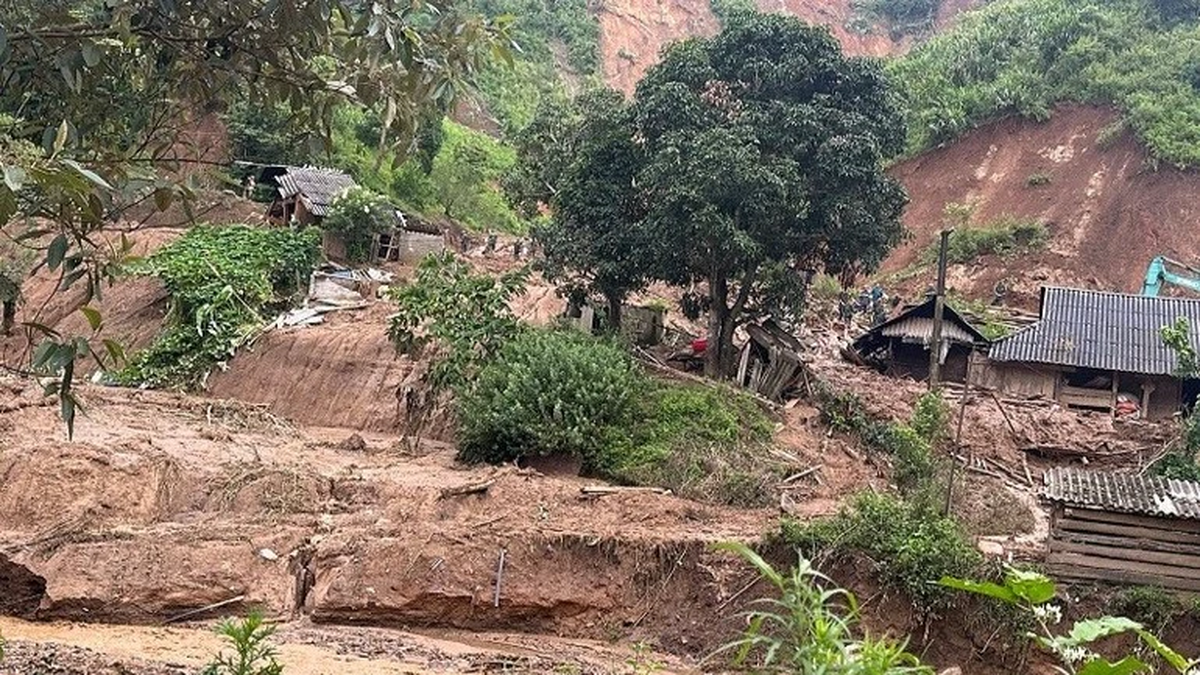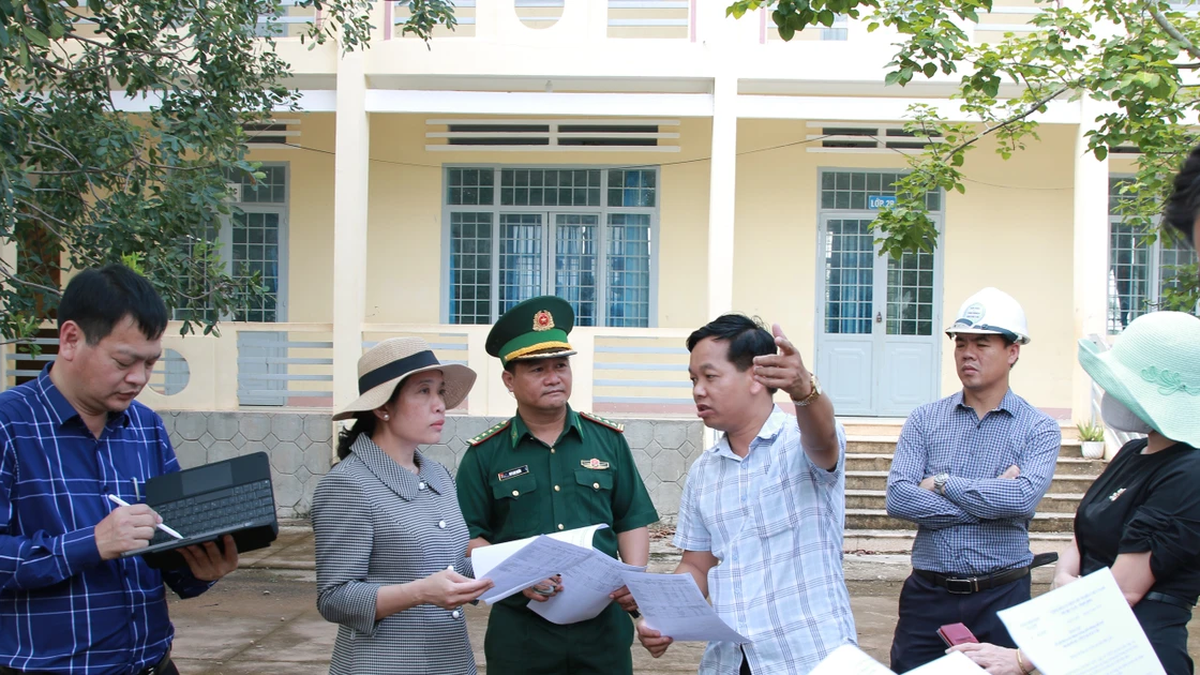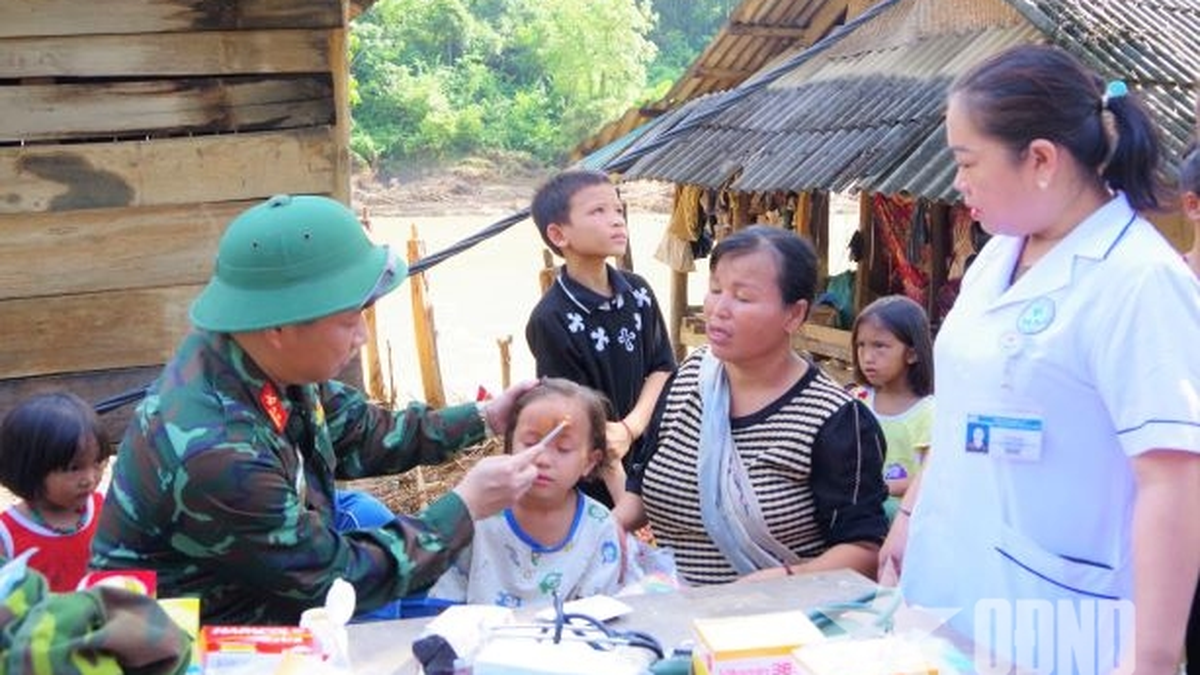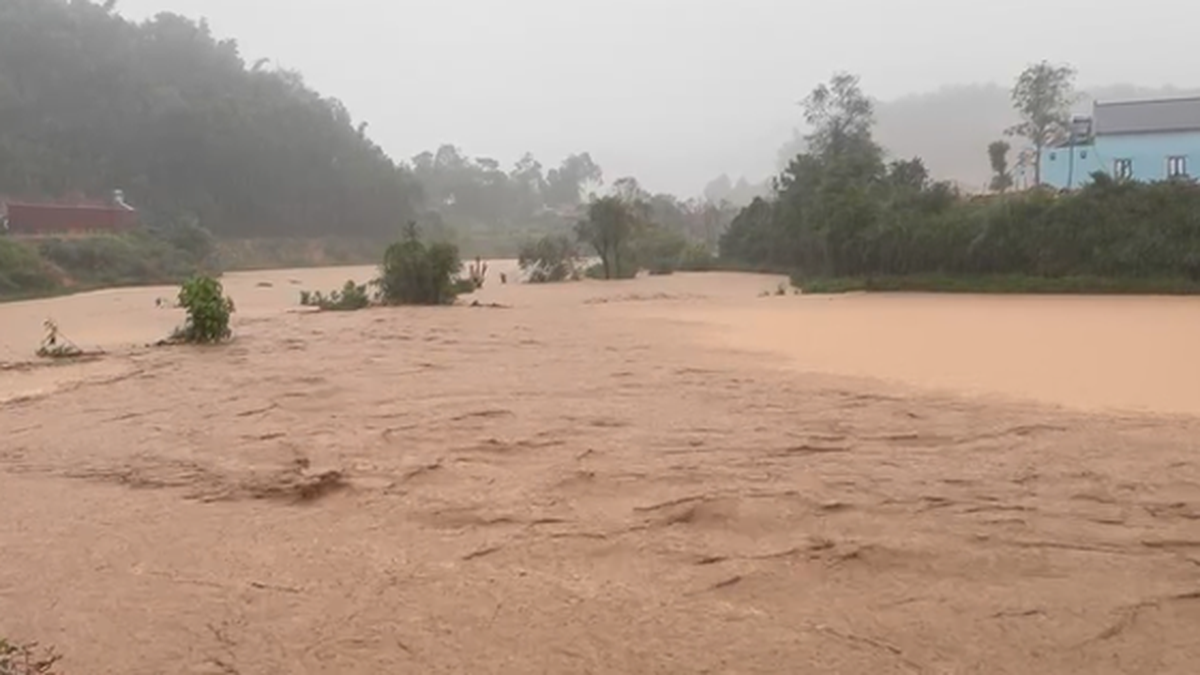Regarding this issue, Dr. Nguyen Hoai Thu, Nutrition Clinic (Vietnam Institute of Applied Medicine) shared: When children learn to roll over, crawl, and walk, they often fall out of bed. The fragile skull of children is easily damaged, increasing the risk of injury, especially head injury.
When a child falls, if there are any signs and symptoms such as: Unconsciousness, vomiting blood or fluid leaking from the child's nose or ears, swelling of the child's head, bleeding or bruising of the head, skull collapse, convulsions, broken bones... you need to call an ambulance immediately. You let the child lie flat on the floor and do not move the child.
If your child has a spinal or neck injury along with a head injury, moving them can make the injury worse. Turn your child onto their side and keep their neck straight if they are vomiting or having a seizure. If your child is bleeding, apply a clean cloth or gauze to the area. A fall can be frightening, but parents should stay calm and monitor the situation until they get medical attention.
You may need to monitor your child closely for 24 hours after the fall, as symptoms of some injuries may take several hours to appear. Many babies tend to sleep after falling out of bed, even though they are shaken. You should try to wake them every few hours to make sure they do not pass out. If your child is lethargic and difficult to wake or sleeps for unusually long periods of time, you should seek medical attention immediately.
Your child may have behavioral changes after a fall, such as increased crying, increased irritability, or an inability to self-soothe. If your child has signs such as reddish urine, loss of appetite, or blue-black spots on their skin, these may be signs of internal injury. You should seek medical attention immediately if your child has any signs or symptoms of injury.
So how can you help your child not fall out of bed? You should choose a bed or crib with guards on all four sides. Use a baby bed no higher than 120cm. The gap between the guardrails should be less than 6cm.
Also, make sure the guardrails are high enough to prevent your baby from climbing over them. Choose low-slung cribs or cribs that lie on the ground. Do not let your baby sleep on an adult bed, changing table, or other surface. Do not let your baby sleep unsupervised in a stroller. If possible, place your baby in his or her own crib and keep hard or sharp objects away from your baby's bed or crib.
Health-related questions should be sent to the "Your Doctor" section, Economic -Social-Internal Affairs Editorial Department, People's Army Newspaper, No. 8 Ly Nam De, Hang Ma, Hoan Kiem, Hanoi. Email: kinhte@qdnd.vn, kinhtebqd@gmail.com. Tel: 0243.8456735 - 0983.602099.
Source


































































































Comment (0)